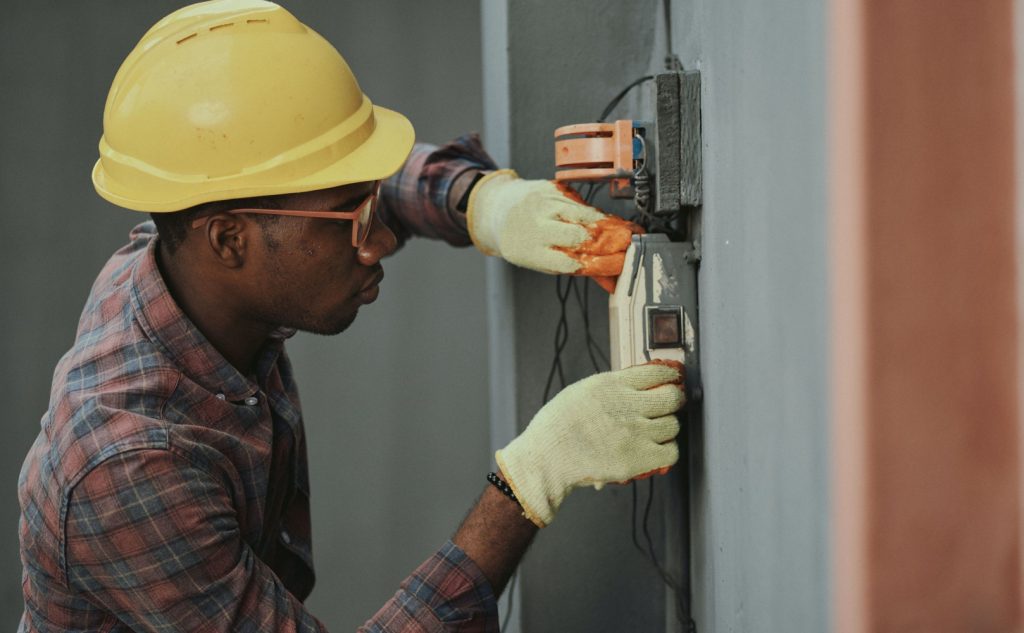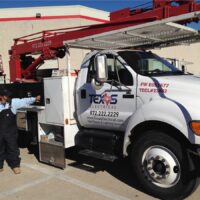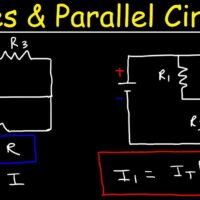Types of electricians include residential, commercial, and industrial electricians. Each specializes in different electrical systems and environments.
Electricians play a crucial role in maintaining and installing electrical systems. Residential electricians handle home wiring, lighting, and electrical repairs. Commercial electricians focus on larger projects like office buildings and retail spaces. Industrial electricians work in factories and industrial settings, dealing with complex machinery and systems.
Specialized electricians, such as maintenance and installation experts, further diversify the field. Knowing the types of electricians helps you choose the right professional for your needs. Understanding their roles ensures safety and efficiency in electrical projects. This guide aims to clarify the distinct functions of various electricians in the industry.

Credit: www.angi.com
Introduction To Electrician Specializations
An electrician’s job involves more than fixing electrical issues. There are many types of electricians, each with unique skills. Let’s dive into these specializations.
The Role Of Electricians
Electricians handle various tasks related to electrical systems. They install, maintain, and repair electrical wiring in buildings. They ensure safety by following electrical codes. Electricians also troubleshoot electrical problems. They work in residential, commercial, and industrial settings.
Importance Of Specialization
Specialization helps electricians focus on specific areas. This ensures high-quality work. Specialized electricians have advanced knowledge and skills. They can handle complex tasks better than general electricians. Here are some common electrician specializations:
| Specialization | Description |
|---|---|
| Residential Electricians | Work in homes, handling wiring, lighting, and electrical repairs. |
| Commercial Electricians | Focus on businesses, dealing with larger electrical systems. |
| Industrial Electricians | Work in factories, maintaining and repairing industrial equipment. |
| Maintenance Electricians | Ensure all electrical systems run smoothly over time. |
| Installation Electricians | Specialize in setting up new electrical systems. |
Each type of electrician plays a crucial role. Their expertise ensures that different electrical needs are met effectively. This specialization leads to safer and more efficient electrical systems.
Residential Electricians
Residential electricians specialize in home electrical systems. They ensure safe and efficient electrical installations and repairs in homes. Their work is crucial for maintaining a safe living environment.
Home Electrical Systems
Home electrical systems are complex networks. They include wiring, circuit breakers, outlets, and lighting. Residential electricians design, install, and maintain these systems.
- Wiring: The backbone of any home electrical system.
- Circuit Breakers: Protect your home from electrical overload.
- Outlets: Provide power for appliances and devices.
- Lighting: Enhance home safety and aesthetics.
Common Residential Projects
Residential electricians handle various projects. They work on new installations and upgrades.
| Project | Description |
|---|---|
| Wiring Upgrades | Replace old wiring to prevent hazards. |
| Lighting Installation | Install energy-efficient lighting solutions. |
| Electrical Panel Upgrades | Increase capacity for modern appliances. |
| Safety Inspections | Identify and fix potential electrical issues. |
These projects ensure homes are safe and efficient. Residential electricians play a vital role in home safety.
Commercial Electricians
Commercial electricians specialize in electrical systems in business environments. They ensure safe and efficient power supply in offices, stores, and other commercial buildings. Their expertise goes beyond simple wiring and repair.
Business And Retail Environments
Commercial electricians work in various business environments. These include office buildings, shopping malls, and restaurants. Their tasks include installing lighting, power outlets, and ensuring electrical safety.
In retail stores, they set up display lighting to attract customers. They also handle emergency lighting systems. This ensures safety during power outages.
Here are some tasks they perform:
- Install and maintain lighting systems
- Set up power outlets and switches
- Ensure compliance with electrical codes
- Perform routine safety checks
Energy Management Systems
Energy management systems help businesses save on energy costs. Commercial electricians install and maintain these systems. They monitor and control energy use in buildings.
These systems include smart meters and automated controls. They optimize energy consumption and reduce waste. This not only saves money but also helps the environment.
Key components of energy management systems:
| Component | Function |
|---|---|
| Smart Meters | Measure energy usage accurately |
| Automated Controls | Adjust lighting and heating based on need |
| Energy Dashboards | Provide real-time energy data |
Industrial Electricians
Industrial electricians play a crucial role in various industries. They specialize in installing, maintaining, and repairing electrical systems in industrial settings. Their expertise ensures that manufacturing plants, processing facilities, and automated systems run smoothly and efficiently.
Manufacturing And Processing
Industrial electricians are vital in manufacturing and processing plants. They install and maintain electrical systems. These systems power machinery and equipment used in production. They also troubleshoot and repair any electrical issues that arise.
Manufacturing plants rely on complex electrical systems. These systems include motors, conveyors, and robotics. An industrial electrician ensures these systems operate safely and efficiently.
| Task | Description |
|---|---|
| Installation | Setting up electrical systems and machinery |
| Maintenance | Regular checks and servicing of electrical systems |
| Troubleshooting | Identifying and fixing electrical issues |
Automation And Control Systems
Industrial electricians also work with automation and control systems. These systems are crucial for modern industrial operations. They include programmable logic controllers (PLCs) and automated machinery.
Electricians install and maintain these automated systems. They ensure the systems operate without any glitches. They also update the systems to keep up with technological advancements.
- Installing PLCs and automated machinery
- Maintaining and updating control systems
- Ensuring smooth operation of automated processes
Automation and control systems increase productivity. They also reduce manual labor and enhance safety. Industrial electricians make sure these systems work efficiently.
Master Electricians
Master electricians are at the pinnacle of the electrical profession. They possess extensive skills, experience, and knowledge in electrical systems. These experts ensure that projects are completed safely and efficiently.
Leadership In Electrical Work
Master electricians often lead electrical teams on large projects. They oversee the installation, maintenance, and repair of electrical systems. This role involves ensuring that all work complies with local and national codes.
They also mentor journeyman electricians and apprentices. This guidance helps the less experienced electricians grow their skills. Master electricians are responsible for project planning and client communication.
Path To Becoming A Master Electrician
The journey to becoming a master electrician is rigorous. It involves several steps and years of experience.
| Step | Description |
|---|---|
| Education | Complete high school or a GED. Some pursue technical school courses. |
| Apprenticeship | Join an apprenticeship program. This usually lasts 4-5 years. |
| Journeyman License | Pass the journeyman exam. Gain experience as a journeyman electrician. |
| Master Electrician Exam | Meet the experience requirements. Pass the master electrician exam. |
Becoming a master electrician requires dedication and hard work. Those who achieve this status are highly respected in the industry.
Journeyman Electricians
Journeyman electricians play a crucial role in the electrical industry. They have extensive knowledge and hands-on experience. This makes them highly skilled professionals. Let’s explore what sets them apart.
On-the-job Experience
Journeyman electricians gain valuable on-the-job experience through apprenticeships. These programs usually last four to five years. During this time, they work under a master electrician. This hands-on training is essential for their growth.
They handle various tasks, including:
- Installing wiring and lighting systems
- Troubleshooting electrical issues
- Reading blueprints and technical diagrams
- Maintaining electrical components
This experience helps them develop practical skills. They become efficient at solving real-world problems.
Licensing And Responsibilities
After completing their apprenticeship, journeyman electricians must obtain a license. This usually involves passing an exam. The exam tests their knowledge of electrical codes and safety standards.
Once licensed, they have several responsibilities:
| Responsibility | Description |
|---|---|
| Installation | Install electrical systems in homes and businesses. |
| Maintenance | Regularly check and maintain electrical systems. |
| Compliance | Ensure all work meets local codes and regulations. |
| Safety | Follow safety procedures to prevent accidents. |
Journeyman electricians must stay updated with new technologies. They often attend training sessions. This helps them stay current in their field.
Specialized Electrical Fields
Electricians work in various specialized fields. Each field requires unique skills. This section explores two specialized electrical fields: Marine Electricians and Automotive Electricians.
Marine Electricians
Marine Electricians focus on electrical systems in boats and ships. They install and maintain electrical components in marine vessels. Their work ensures safe and reliable electrical systems at sea.
- Install navigation systems
- Maintain communication devices
- Repair lighting systems
- Test electrical safety
Marine Electricians often work in shipyards. They also work on docks and onboard vessels. This specialized field requires knowledge of marine regulations.
Automotive Electricians
Automotive Electricians focus on vehicles’ electrical systems. They work on cars, trucks, and other vehicles. Their tasks include installing, maintaining, and repairing electrical components.
- Diagnose electrical issues
- Repair wiring
- Install new electrical systems
- Ensure safety and compliance
Automotive Electricians need to understand vehicle electronics. They often work in repair shops and dealerships. This field requires constant learning due to evolving vehicle technology.
Emerging Specialties In Electrical Work
The electrical industry constantly evolves. New specialties emerge to meet modern needs. Electricians now work in diverse fields. These fields include renewable energy and smart home technology. Let’s explore these specialties.
Renewable Energy Systems
Electricians in renewable energy focus on green solutions. They work with solar panels, wind turbines, and hydroelectric systems. These professionals install and maintain energy-efficient systems. They ensure homes and businesses use less power.
- Solar Technicians: Install and maintain solar panels.
- Wind Turbine Technicians: Work on wind turbines.
- Hydroelectric Technicians: Focus on water-based power systems.
| Specialty | Key Task |
|---|---|
| Solar Technicians | Install solar panels |
| Wind Turbine Technicians | Maintain wind turbines |
| Hydroelectric Technicians | Oversee hydroelectric systems |
Smart Home Technology
Electricians in this field work with smart devices. They install systems that automate homes. These systems include lighting, security, and climate control. Smart home electricians ensure your devices work together.
- Smart Lighting Installers: Set up automated lighting systems.
- Security System Technicians: Install smart security devices.
- Home Automation Specialists: Integrate various smart devices.
Smart homes require skilled electricians. They make sure your home is both smart and safe. This specialty is growing rapidly. More homes are getting smarter every day.
Education And Certification
Becoming an electrician requires formal education and certification. This ensures safety and quality. Different types of electricians need various levels of training. Understanding these requirements can help you choose the right path.
Training Pathways
Training pathways for electricians vary. Here are the common routes:
- Apprenticeship Programs: These programs mix classroom learning and hands-on work. They usually last 4-5 years.
- Technical Schools: These schools offer specialized programs. Courses range from electrical theory to safety practices. Programs can last from several months to two years.
- Community Colleges: These institutions provide associate degree programs. They often include internships for practical experience.
Continuing Education For Electricians
Electricians must stay updated with new codes and technologies. Continuing education helps them keep their skills current. Here are key aspects of continuing education:
- Code Updates: Electricians must learn new electrical codes. This ensures they follow the latest safety standards.
- Specialized Training: Training in new technologies is crucial. This includes solar panels, smart home systems, and more.
- Renewal Courses: Some states require license renewal every few years. Electricians take courses to fulfill these requirements.
| Type of Training | Duration | Key Components |
|---|---|---|
| Apprenticeship Programs | 4-5 years | Classroom learning, hands-on work |
| Technical Schools | Several months to 2 years | Electrical theory, safety practices |
| Community Colleges | 2 years | Associate degree, internships |
Both initial training and ongoing education are vital. They ensure electricians provide safe and effective services. Following these pathways helps maintain high standards in the field.

Credit: www.iec-cincy.com
Career Outlook For Electricians
The career outlook for electricians is promising. Electricians are in high demand across various industries. This section explores job market trends and advancement opportunities for electricians.
Job Market Trends
The job market for electricians is growing. The Bureau of Labor Statistics predicts a 8% growth rate through 2030. This growth is due to new construction projects and the need to maintain older systems.
Electricians are essential in renewable energy projects. Solar and wind energy installations require skilled electricians. This trend boosts job opportunities.
Residential areas also need electricians. Homeowners often seek electrical upgrades and repairs. This increases the demand for electricians in the residential sector.
| Sector | Demand Growth |
|---|---|
| Construction | 10% |
| Renewable Energy | 12% |
| Residential | 8% |
Advancement Opportunities
Electricians have many opportunities for advancement. Experienced electricians can become supervisors or managers. They can oversee projects and teams.
Some electricians specialize in fields like industrial or commercial work. Specialization can lead to higher pay and more job security.
Electricians can also start their own businesses. Self-employment offers the potential for greater earnings and flexibility. This path requires business skills and financial planning.
- Become a supervisor or manager
- Specialize in a niche field
- Start your own business
Continuing education is key for advancement. Electricians must stay updated with new technologies and codes. Many trade schools and associations offer courses and certifications.

Credit: www.neit.edu
Frequently Asked Questions
What Type Of Electrician Gets Paid The Most?
Industrial electricians usually get paid the most. They work in factories, power plants, and other large-scale industrial settings.
What Is The Most Common Type Of Electrician?
The most common type of electrician is a residential electrician. They install, maintain, and repair electrical systems in homes.
What Is The Lowest Level Of Electrician?
The lowest level of electrician is an Apprentice. Apprentices work under the supervision of licensed electricians to gain experience.
Which Electrician Certification Is Best?
The best electrician certification is the Journeyman Electrician license. It ensures comprehensive training and industry recognition.
Conclusion
Understanding the different types of electricians helps in making informed decisions. Residential, commercial, and industrial electricians each have unique skills. Choose the right professional for your specific needs. Properly trained electricians ensure safety and efficiency. Always verify credentials before hiring.
Your electrical projects deserve expert attention for optimal results.



